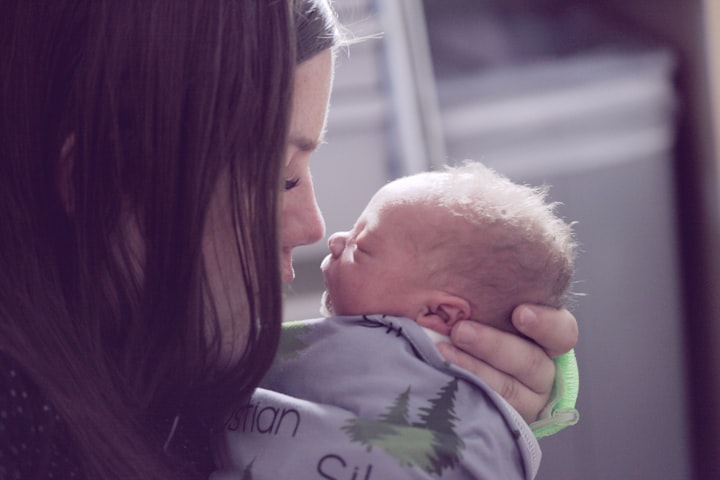25 Q&A on Postpartum Depression: What You Should Know
Postpartum depression is a mood disorder that can affect women after they give birth

1. What is postpartum depression?
Postpartum depression is a mood disorder that can affect women after they give birth. Symptoms can include feeling sad, anxious, or overwhelmed, having problems sleeping or eating, and feeling disconnected from your baby.
2. What are the symptoms of postpartum depression?
Symptoms of postpartum depression can include feeling sad, anxious, or overwhelmed, having problems sleeping or eating, and feeling disconnected from your baby.
3. How common is postpartum depression?
Postpartum depression is common, affecting about 1 in 9 women.
4. What causes postpartum depression?
The cause of postpartum depression is not fully understood, but it may be related to changes in hormone levels after childbirth.
5. Who is at risk for postpartum depression?
Some women are at a higher risk for postpartum depression, including those who have a history of depression, anxiety, or other mental health problems.
6. What can I do to reduce my risk of postpartum depression?
There is no sure way to prevent postpartum depression, but you can reduce your risk by getting early and regular prenatal care, and seeking help if you have any symptoms of depression during or after pregnancy.
7. What are the treatments for postpartum depression?
Treatment for postpartum depression may include counseling, medication, or both.
8. How long will I need treatment for postpartum depression?
The length of treatment for postpartum depression varies from woman to woman. Some women may only need a few weeks of treatment, while others may need longer-term care.
9. What are the side effects of medications for postpartum depression?
The side effects of medications for postpartum depression vary, but may include drowsiness, dizziness, and weight gain.
10. Will my postpartum depression go away on its own?
Most cases of postpartum depression resolve over time, but some women may need treatment for a longer period of time.
11. What can I do to help myself feel better if I have postpartum depression?
There are a number of things you can do to help yourself feel better if you have postpartum depression, including getting regular exercise, eating a healthy diet, and getting enough sleep.
12. Can postpartum depression affect my baby?
Postpartum depression can affect both the mother and baby. Babies of mothers who have postpartum depression may be slower to gain weight and may have problems with feeding and sleeping.
13. How can I tell if my baby has postpartum depression?
There is no one definitive sign of postpartum depression in babies, but some symptoms to look out for include fussiness, crying a lot, and not sleeping well.
14. What should I do if I think my baby has postpartum depression?
If you think your baby has postpartum depression, you should take him or her to a pediatrician or other healthcare provider.
15. Is postpartum depression considered a mental illness?
Yes, postpartum depression is considered a mental illness.
16. What is the difference between postpartum depression and the "baby blues"?
The baby blues are a mild form of postpartum depression that affects about half of all women after childbirth. Symptoms can include mood swings, crying, and feeling overwhelmed.
17. How can I tell if I have the baby blues or postpartum depression?
The baby blues usually resolve within a few weeks, while postpartum depression may require treatment. If you are experiencing symptoms that are causing you significant distress or interfering with your ability to take care of your baby, you may have postpartum depression.
18. What should I do if I think I have postpartum depression?
If you think you have postpartum depression, you should talk to your healthcare provider. He or she can help you determine if you need treatment and can refer you to appropriate resources.
19. I'm feeling really down and hopeless. Could I have postpartum depression?
Yes, it is possible to have postpartum depression even if you don't have any of the other symptoms typically associated with the condition.
20. I'm having a hard time caring for my baby. Could my problems be related to postpartum depression?
Yes, problems caring for your baby are a common symptom of postpartum depression.
21. I'm not feeling anything like I expected to after my baby was born. Could I have postpartum depression?
Yes, it is possible to have postpartum depression even if you don't have any of the other symptoms typically associated with the condition.
22. I'm really anxious and I'm having a hard time sleeping. Could I have postpartum depression?
Yes, anxiety and problems sleeping are common symptoms of postpartum depression.
23. I'm not bonding with my baby. Could my problems be related to postpartum depression?
Yes, not bonding with your baby is a common symptom of postpartum depression.
24. I'm feeling really overwhelmed. Could I have postpartum depression?
Yes, feeling overwhelmed is a common symptom of postpartum depression.
25. I'm not sure if I have postpartum depression or not. What should I do?
If you are unsure if you have postpartum depression, you should talk to your healthcare provider. He or she can help you determine if you need treatment and can refer you to appropriate resources.
About the Creator
Alain Saamego
Software engineer , Writer and Content Strategist at Selfgrow.co.uk
I'm a technology enthusiast, and I love learning about upcoming technologies. I also enjoy teaching and answering questions about new technologies.






Comments
There are no comments for this story
Be the first to respond and start the conversation.